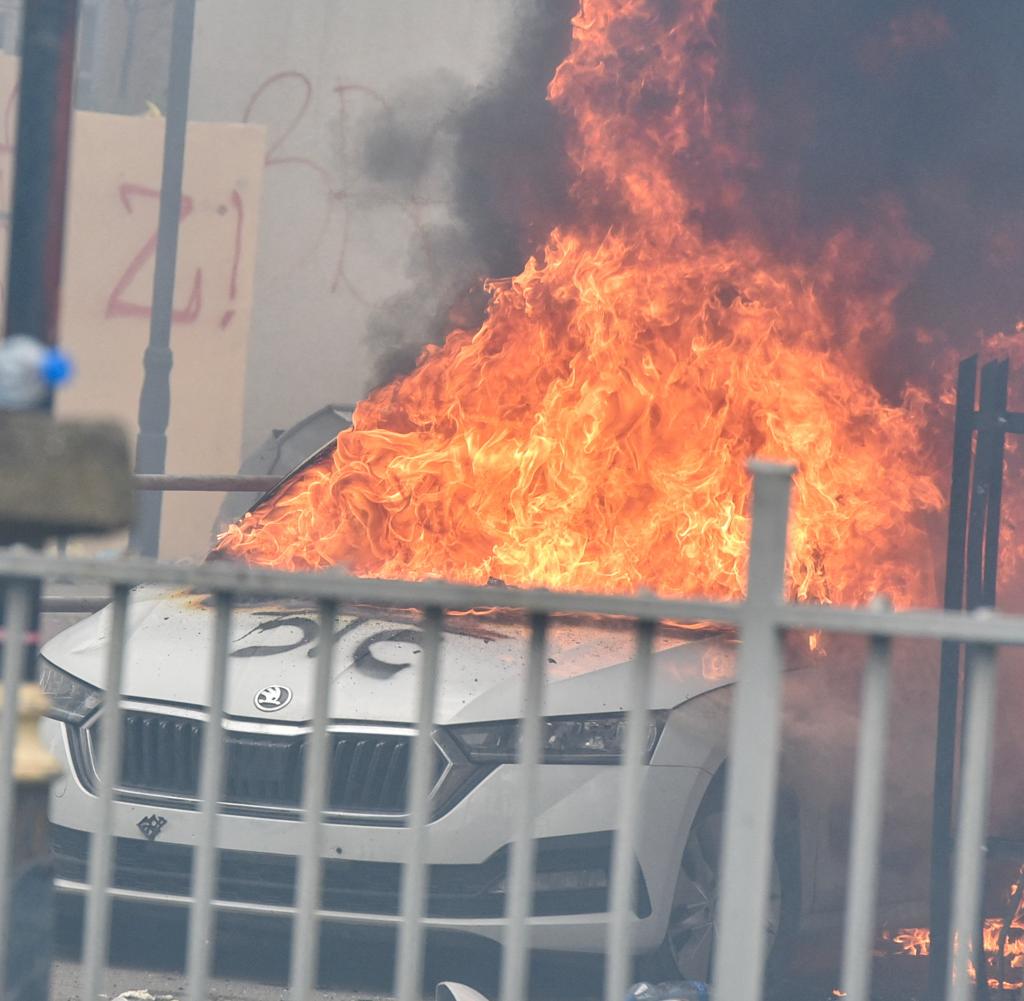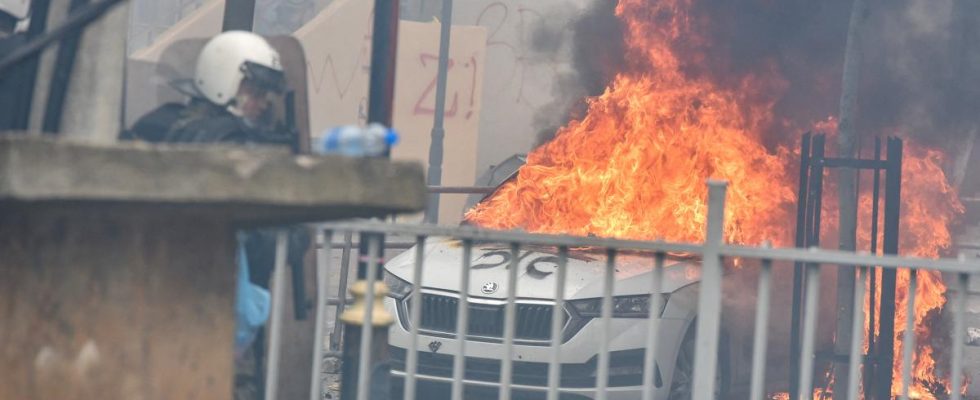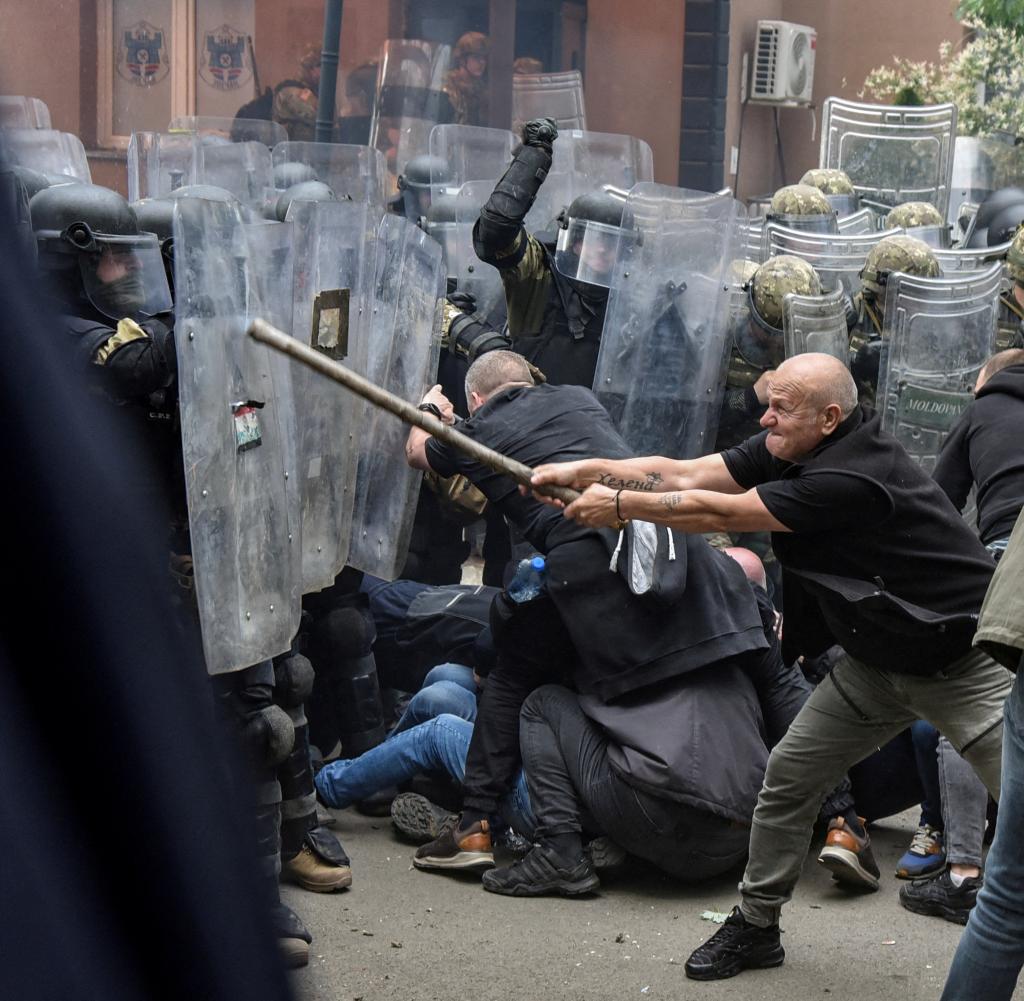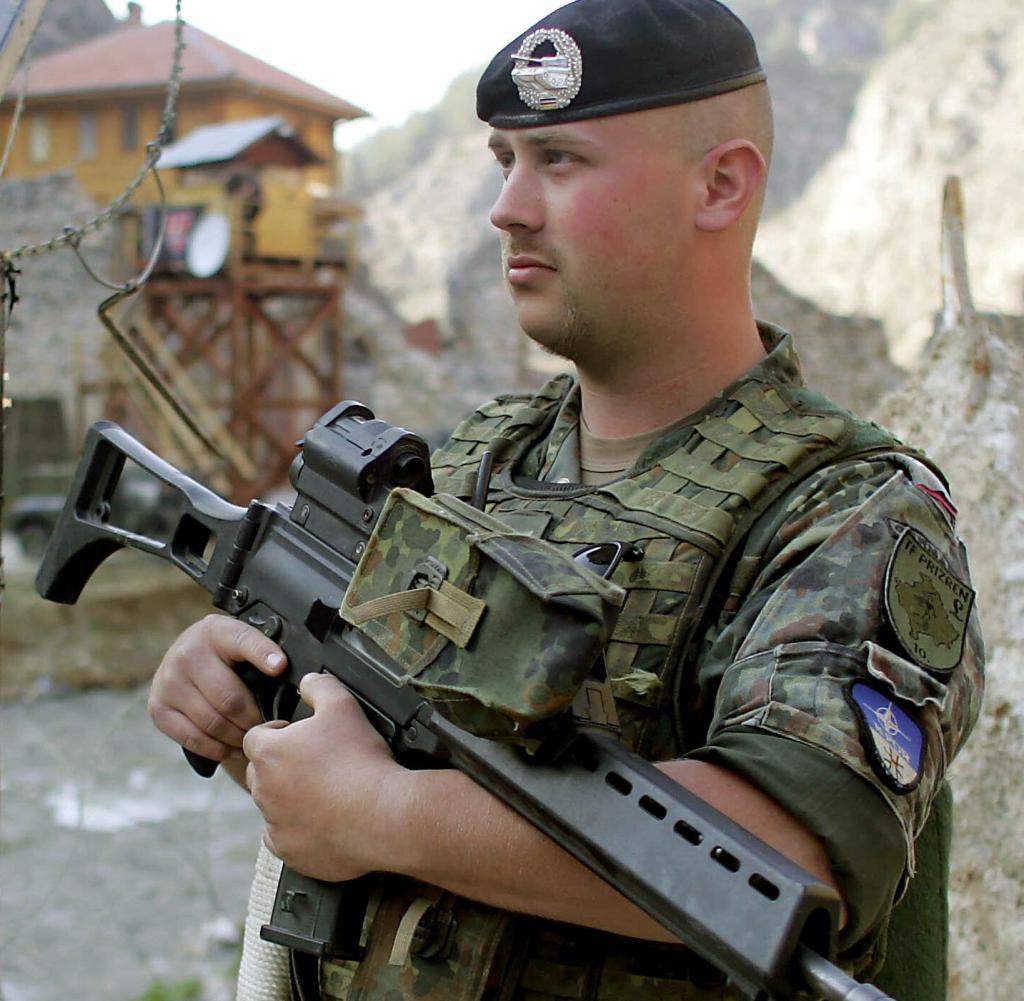25 injured KFOR soldiers after Serbian riots in Kosovo

Burning car in Zvecan after clash between NATO soldiers and Serbian demonstrators
Source: REUTERS
Even 15 years after independence, Kosovo still hasn’t calmed down – following a mayoral election that got out of hand, Serbs demonstrated against the Albanian incumbent. Now members of the NATO-led peacekeeping mission also got caught between the fronts.
Rand 25 soldiers from the NATO-led peacekeeping mission in Kosovo (KFOR) were injured in riots by Serb demonstrators. “Several soldiers from the Italian and Hungarian KFOR contingents were attacked without reason and suffered injuries with broken bones and burns from the explosion of incendiary bombs,” KFOR said on Monday evening.
KFOR condemned the attacks on its troops and stressed that such attacks were “completely unacceptable”. The Serb demonstrators, who are demanding the removal of the recently elected Albanian mayor, tried to break into the city administration building in the town of Zvecan in northern Kosovo.
Violent clashes rocked the town of Zvecan in northern Kosovo
Source: REUTERS
The police then used tear gas. KFOR soldiers intervened and positioned themselves between the police and the demonstrators.
In April, the Kosovar authorities held local elections in four Serb-majority towns. However, the Serbs largely boycotted the elections, so the Albanian minority took control of the municipal councils despite an overall turnout of less than 3.5 percent.
Kosovo, a country of 1.8 million people with a majority ethnic Albanian population, declared its independence from Serbia in 2008, but Belgrade still regards it as a Serbian province to this day. Around 120,000 Serbs live in Kosovo. The region was shaken by a devastating war in 1998 and 1999.
“Kick-off” is WELT’s daily news podcast. The most important topic analyzed by WELT editors and the dates of the day. Subscribe to the podcast at Spotify, Apple Podcasts, Amazon Music or directly via RSS feed.



